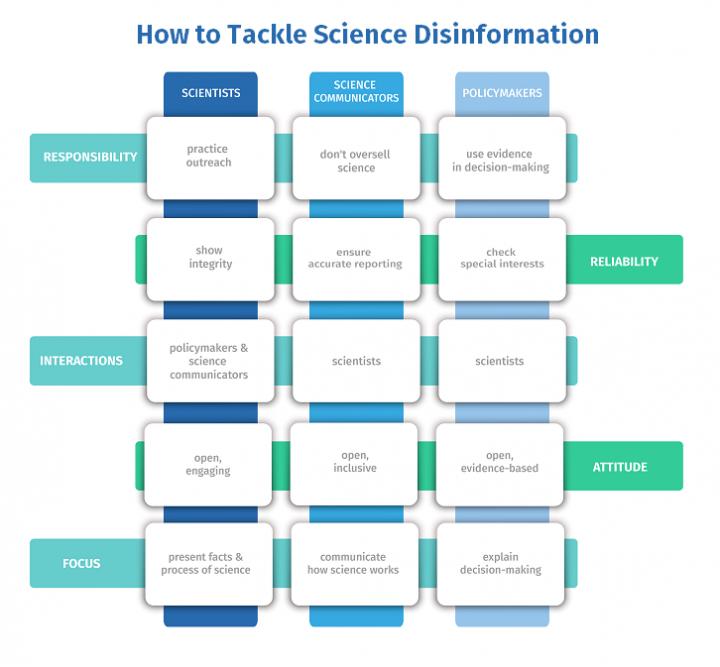In a new report, ALLEA, the European Federation of Academies of Sciences and Humanities, examines the potential of technical and policy measures to tackle science disinformation

Credit: ALLEA
Berlin, 3 May – In a new report, ALLEA, the European Federation of Academies of Sciences and Humanities, examines the potential of technical and policy measures to tackle science disinformation and calls for improved European exchange and coordination in this field.
While disinformation strategies are intoxicating public discourses in many fields, science disinformation is particularly dangerous to democratic governance and society at large. As highlighted by the ongoing pandemic, an undermining of trust in science poses a fundamental threat to political and individual decisions based on evidence and scientific knowledge.
Over the past years, extensive research and a variety of strategies have been developed and applied to tackle science disinformation. ALLEA’s paper reviews this work, focusing on the roots and consequences of this multi-dimensional phenomenon, as well as practical solutions for policy, technology and communication.
“The science race against Covid-19 has not only been in the search for a vaccine. Another major risk has mobilised researchers: science disinformation. This report identifies key pathways to counter this ‘infodemic’ in future global crises. Seeing these problems unfolding in our societies, we need an institutionalised and coordinated strategy to galvanise researchers, communicators, and policymakers into action as early as possible”, says ALLEA President Antonio Loprieno.
The authors discuss the most prominent psychological, technical and political strategies to counter science disinformation, including inoculation, debunking, recommender systems, fact-checking, raising awareness, media literacy, as well as innovations in science communication and public engagement.
Following an analysis of the consequences of science disinformation in climate change, vaccine hesitancy and pandemics, the report concludes with a series of recommendations. The authors call for:
- a stronger focus on communicating how science works and more dialogue in science communication practices,
- a serious engagement with the public when exercising or communicating research,
- valuing the virtue of intellectual humility when communicating scientific evidence,
- the maintenance of good research practices and high ethical standards to ensure integrity and trustworthiness,
- accountable, honest, transparent, tailored and effective science advice mechanisms.
To implement these proposals, the authors advise to establish a European Centre/Network for Science Communication and a European Code of Conduct for Science Communication.
“Even though there seems to be widespread awareness of the problems and harm caused by disinformation, there is still no coordinated European effort to respond to this with increased and better science communication. While mechanisms of science advice for policy have been introduced on different levels to bridge the gap between scientists and policymakers, no central pan-European mechanism or institution is in place to coordinate existing initiatives and develop coherent guidelines and recommendations on science communication in an inclusive manner”, the authors argue.
The discussion paper will be presented and debated at the upcoming scientific symposium ‘Across Boundaries in Sciences’, held online on 5 May, during the 2021 ALLEA General Assembly. Registration is still open at: https:/
###
Download report at: https:/
Media Contact
Susana Irles
[email protected]
Original Source
https:/




